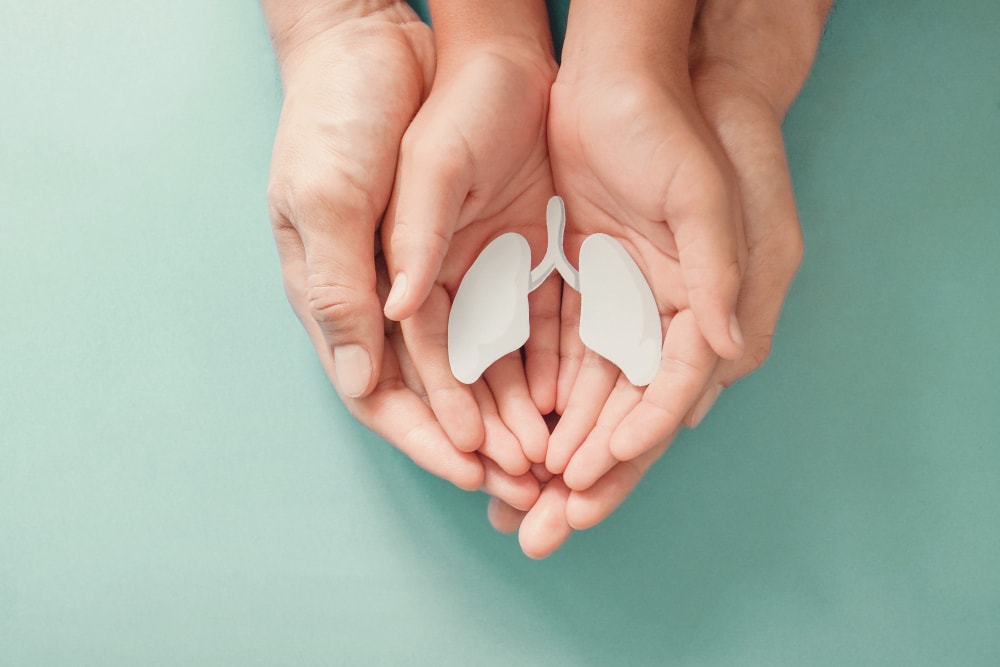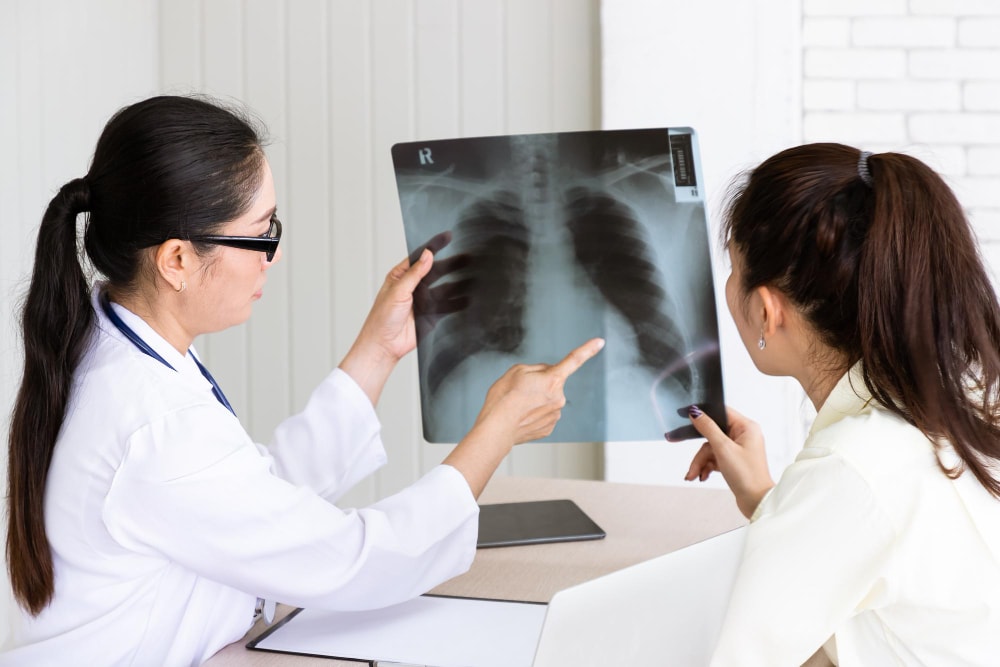
Your lungs play a vital role in your overall health, powering your body with oxygen and eliminating carbon dioxide through the process of gas exchange.
Simple Solutions for Better Lung Health at Home
Keeping your lungs healthy is crucial for maintaining high energy levels, boosting immunity, and reducing your risk of serious illnesses, including lung cancer, chronic obstructive pulmonary disease (COPD), and heart disease.
What’s the State of Lung Health in the Philippines?
In the Philippines, lung-related diseases are among the top health concerns. According to the Department of Health (DOH), respiratory illnesses like pneumonia and tuberculosis remain leading causes of death, especially among young children, young adults, and older adults. Cancer death has also seen an increase in recent years.
Moreover, chronic lung disease (like chronic bronchitis and COPD) affects thousands of Filipinos, often worsened by cigarette smoke, indoor air pollution, and poor outdoor air quality.

10 Simple Ways to Improve Your Lung Function at Home:
Whether you’re in the city or the countryside, making small but consistent changes at home can significantly improve lung health for your entire family.
Here are simple, practical steps you can take if you want an increased lung capacity and ensure that you keep your lungs healthy for years to come:
1. Quit Smoking and Avoid Secondhand Smoke
One of the most effective ways to improve your lung health is to quit smoking.
Cigarette smoke damages lung tissue, reduces lung capacity, and is the leading cause of lung cancer and chronic obstructive pulmonary disease. If someone in your household smokes, encourage them to quit and support them through the process.
Equally important is to avoid secondhand smoke. The American Lung Association warns that even passive exposure to smoke can trigger asthma symptoms, decrease lung function, and raise the risk of developing chronic lung disease, especially in children.
2. Improve Indoor Air Quality
Indoor air can be more polluted than outdoor air due to trapped cigarette smoke, mold, dust, and chemical fumes from cleaning products. To enhance your home’s indoor air:
- Open windows to improve ventilation.
- Use exhaust fans in the kitchen and bathroom.
- Avoid using aerosol sprays and strong chemical cleaners.
- Keep humidity levels between 30–50% to prevent mold growth.
- Add houseplants known for air purification, like snake plants or peace lilies.
This helps reduce indoor air pollution and makes breathing easier, especially for those with lung disease or allergies.

3. Be Aware of Outdoor Air Pollution
Check the daily air quality index (AQI) in your area, especially if you live in an urban zone with high traffic. On days when outdoor air pollution is high, limit outdoor activities and keep windows closed.
If you need to go outside, consider wearing a mask, especially during the dry season or during wildfires and high-smog periods, to maintain healthy lungs.

4. Practice Breathing Techniques
Simple breathing techniques can increase lung capacity and improve oxygen flow. Two proven methods include:
- Diaphragmatic breathing (belly breathing): Focus on expanding your diaphragm, not just your chest. This diaphragmatic breathing technique helps strengthen the respiratory system and improve lung function.
- Pursed-lip breathing: Inhale through your nose, then exhale slowly through pursed lips. This reduces shortness of breath and helps keep airways open longer, particularly helpful for people with chronic bronchitis or COPD.
Practicing these deep breathing exercises daily can enhance lung capacity and reduce the effort needed to breathe.

5. Stay Physically Active
Engaging in regular exercise boosts lung health by improving circulation, oxygen uptake, and endurance. Aim for at least 30 minutes of physical activity daily, such as walking, cycling, swimming, or even dancing.
Exercise not only keeps your lungs working efficiently but also keeps your body strong overall and supports better heart health.
6. Eat a Lung-Healthy Diet
A diet rich in leafy green vegetables, whole grains, and lean proteins helps maintain healthy lungs. Some of the best foods for lung health include:
- Leafy greens like spinach and malunggay
- Whole wheat bread, oats, and whole grains like brown rice and multi-grain rice
- Lean proteins such as chicken breast, tofu, and legumes
- Fresh fruits, especially those high in antioxidants (e.g., citrus fruits, berries)
Avoid the worst foods for lung health, such as cured meats high in nitrates, processed snacks, and sugary drinks, which can promote inflammation and worsen lung problems.
7. Stay Hydrated
Drinking enough water thins mucus in the lungs, making it easier to expel and reducing your risk of respiratory infections. Aim for at least 8 glasses a day, more if you’re active or live in a hot climate.
8. Stay Up-to-Date With Vaccines
Respiratory infections like the flu, pneumonia, and COVID-19 can severely affect those with pre-existing lung conditions. In fact, respiratory health conditions can lead to larger health problems when left untreated.
Ask your healthcare provider about receiving the pneumonia vaccine, flu shots, and other recommended immunizations to protect your lungs.
9. Reduce Exposure to Triggers
For individuals with asthma symptoms or chronic lung disease, identifying and minimizing exposure to triggers like dust, pet dander, mold, and strong perfumes can drastically improve daily comfort and reduce flare-ups.

10. Monitor and Consult a Healthcare Provider
Regular checkups help detect early signs of lung disease. If you experience symptoms like shortness of breath, chronic coughing, wheezing, or fatigue, consult a healthcare provider immediately. Even if they’re not directly related to lung health (or if you’re unsure that the symptoms you’re experiencing are lung-related), it’s best to get checked by a professional.
Early detection can prevent the progression of conditions like lung cancer or chronic bronchitis.
Camella: Building Healthier Homes for Better Lung Health
The environment you live in has a major impact on your lung health. That’s why Camella designs its homes with the well-being of Filipino families in mind. From strategic ventilation and spacious layouts that promote airflow to communities located away from heavy industrial zones, Camella makes it easier to breathe clean, fresh air every day.
Many Camella communities also offer open green spaces, tree-lined streets, and jogging paths that encourage physical activity, support mental health, and help your lungs work more efficiently. By prioritizing clean and green living environments, Camella is taking part in the nationwide effort to reduce respiratory illnesses and promote overall health for all generations.
Breathe Easier, Live Healthier
With these simple and effective strategies, your family can enjoy stronger lungs, better energy, and improved resistance against serious illness. Breathing deeply should be a gift we never take for granted. With the right environment, like those in Camella communities, and a commitment to healthier living, you can take control of your family’s lung health today.

Celebrate Life’s Milestones in Camella!
House and Lot & Condominium for Sale in the Philippines


